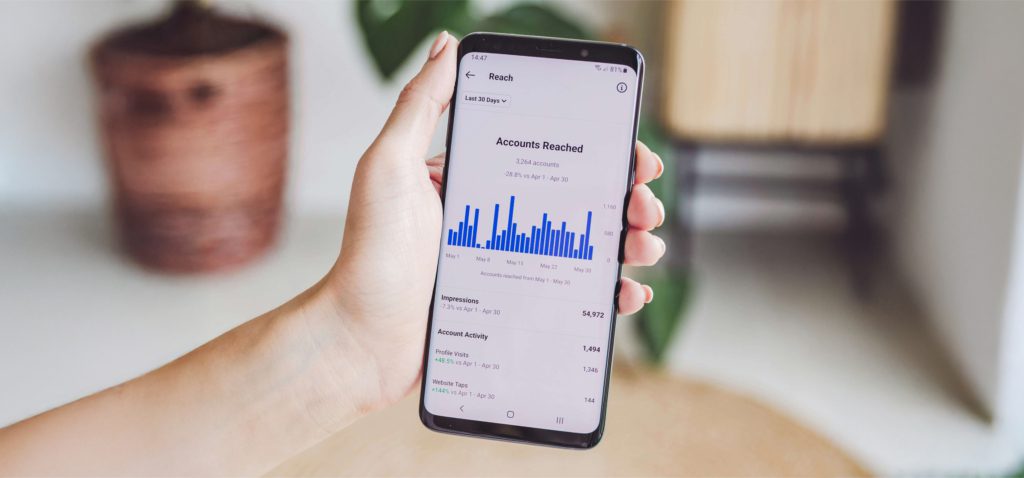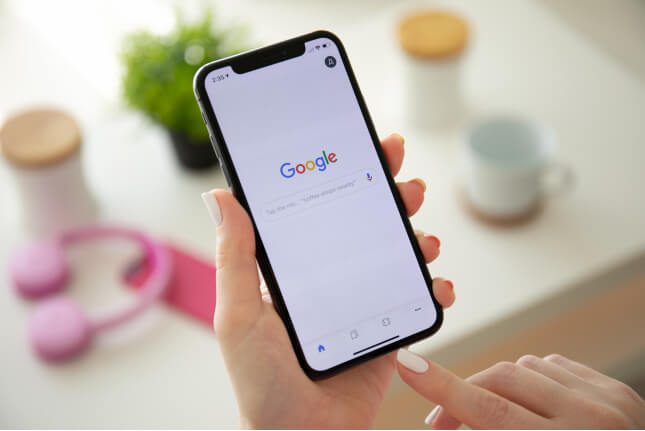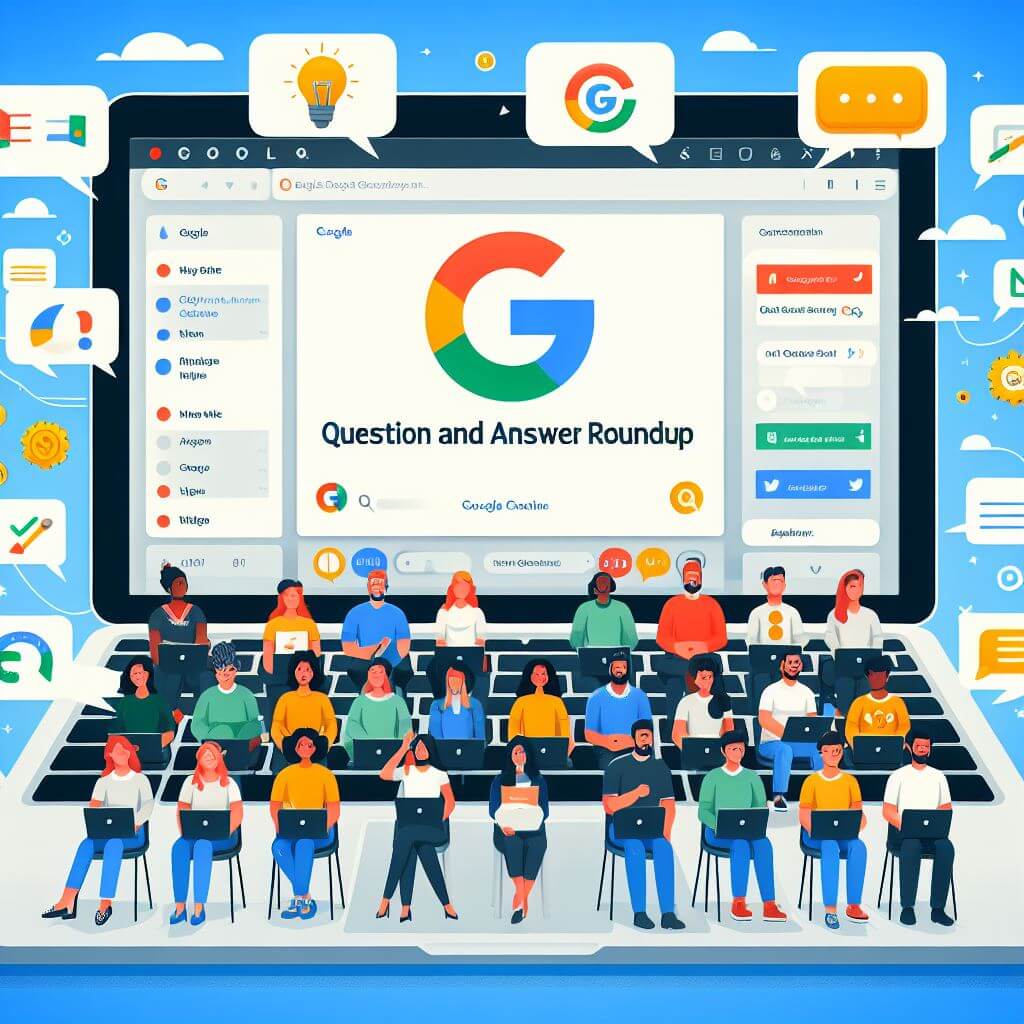Google is starting to test its AI capabilities with a new version of SERPs, called Search Generative Experience – or SGE for short.
The setup has given the SEO community a preview of very different-looking search results pages for certain queries, and there has been a mixed response to the change.
Currently, SGE is available for select users in certain parts of the world to test out via Google’s Search Labs feature.
However, those who have been trying out the new functionality have quickly spotted some issues they’re not too happy about…
What happened?
A content SEO vented about an SGE feature she wasn’t happy with on Twitter, saying: ‘Sooooo what are we supposed to do when our words are plagiarised without direct attribution? I know this is something other SEOs have already seen. But when it’s a direct quote, it should be clearer than just the suggested articles off to the side.’
Her tweet was accompanied by a screenshot, which shared a view of the new AI-powered SERP. At the top, a green box highlighted the section where AI generated a response, with three sources cited to the right hand side.
Soooooo what are we supposed to do when our words are plagiarized without direct attribution? I know this is something other SEOs have already seen. But when it’s a direct quote, it should be clearer than just the suggested articles off to the side. pic.twitter.com/3QHgxle0R1
— Rebekah Edwards | Content-Led SEO (@rebekah_creates) May 26, 2023
The SEO followed up with another screenshot, saying: ‘This is not something I enjoy seeing. This…could be a potential legal disaster if it’s not addressed before the public rollout.’
Yeah, this is not something I enjoy seeing without direct attribution/quoting.
I feel like this is one area that could be a potential legal disaster if it’s not addressed before the public rollout. pic.twitter.com/OzeFANJTXx
— Rebekah Edwards | Content-Led SEO (@rebekah_creates) May 26, 2023
Another SEO replied to the tweet: ‘Hey! I recognise those words!’
Flattered and also enraged. 😆
— Agnes | Travel on the Reg (@travelonthereg) May 26, 2023
How did Google reply?
Google Search Liaison replied with: ‘I see you noted how in expanded view, the association is even clearer. SGE is an experiment, so this type of feedback is appreciated and helpful as we continue to improve it.’
I see you noted how in expanded view, the association is even clearer. SGE is an experiment, so this type of feedback is appreciated and helpful as we continue to improve it. Also shared a bit more on linking here https://t.co/x4LLTp0nVH — again, thank you for the feedback.
— Google SearchLiaison (@searchliaison) May 27, 2023
The response quoted another SEO who had picked up on the issue by saying: ‘Something that is a bit alarming about SGE is that it seems to directly plagiarise content. I thought generative AI almost always switched words around. I’m finding many examples where the answer is pulled from the page verbatim…’
This is one of many examples I am finding but something that is a bit alarming about SGE is that it seems to directly plagiarize content.
I thought generative AI almost always switched words around. I’m finding many examples where the answer is pulled from the page verbatim… pic.twitter.com/u9aTMaxcYU
— Lily Ray 😏 (@lilyraynyc) May 26, 2023
Google Search Liaison had replied to this tweet with: ‘Generative responses are corroborated by sources from the web & when a portion of a snapshot briefly includes content from a specific source, we will prominently highlight that source in the snapshot.’
Generative responses are corroborated by sources from the web & when a portion of a snapshot briefly includes content from a specific source, we will prominently highlight that source in the snapshot. In this example, the first link matches that & it also shows in expanded view. pic.twitter.com/xPRit5FssA
— Google SearchLiaison (@searchliaison) May 26, 2023
Another SEO shared a screenshot saying that their view of the new AI carousel didn’t make it clear, in his view, that the source had been ‘prominently highlighted’.
Not in this screenshot. pic.twitter.com/GFc3mgaDFf
— Mike Futia (@mikefutia) May 26, 2023
Search Liaison made it clearer where the attribution was visible, saying: ‘It’s the first link to the right of the snapshot. I’ve put a box around it. Also notice the other box at the end. When you see this, you can click through all the corroborating sources without going to expanded mode.’
It’s the first link to the right of the snapshot. I’ve put a box around it. Also notice the other box at the end. When you see this, you can click through all the corroborating sources without going to expanded mode. pic.twitter.com/AoGoe9uMGJ
— Google SearchLiaison (@searchliaison) May 26, 2023
The other SEO then chimed in: ‘It’s not clear which quote is tied to which publisher until you click the link in the upper-right.’
Maybe the “full list of sources” view should be the default view then? It’s not clear which quote is tied to which publisher until you click the link in the upper-right. pic.twitter.com/Brp4pQYkTM
— Lily Ray 😏 (@lilyraynyc) May 26, 2023
Google Search Liaison appeared to back down at this point, saying: ‘Appreciate the feedback, and would encourage you or anyone with access to also make use of the feedback tool that’s part of SGE. It’s an experiment, so the feedback will help us shape it and improve.’
Appreciate the feedback, and would encourage you or anyone with access to also make use of the feedback tool that’s part of SGE. It’s an experiment, so the feedback will help us shape it and improve.
— Google SearchLiaison (@searchliaison) May 26, 2023
Why are SEOs up in arms?
One of the main concerns SEOs have had since the announcement of SGE is the likely spike in zero-click searches for impacted queries. In other words, for the search terms which trigger the AI response, chances are people will read the generative answer and not click on to another site.
This was concerning enough to the SEO community, but the new discovery that SGE is arguably not clearly attributing direct quotations in its generative responses to the cited sources in the carousel has clearly added insult to injury.
Not only are content SEOs less likely to get click throughs to their work, they are feeling that Google is plagiarising it and taking the credit. While Google Search Liaison tried to describe how sources were attributed, it was clear SEOs didn’t agree the link was clear enough.
As SGE continues to be tested and unveil potential issues, it will be interesting to see how Google responds to the feedback.
Need help with Search Generative Experience?
If you want to get the most out of SGE but don’t know how, get in touch today to see how we can help.
Or book in for one our Free Acquisitions Workshops, where you can enjoy a free 30-minute chat with an experienced marketing expert, who will then tailor an action plan specific to you any concerns you may have.












